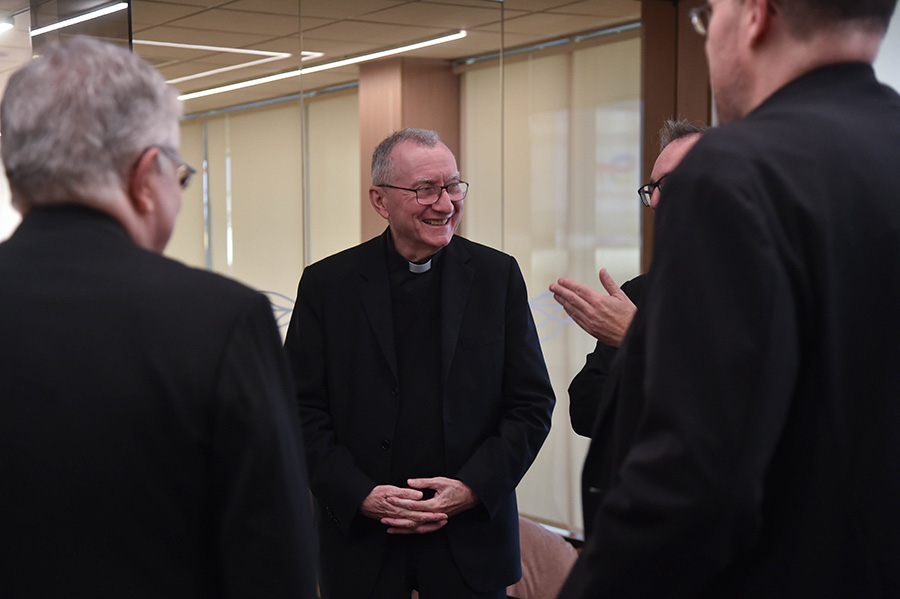
Cardinal Pietro Parolin, Vatican secretary of state, arrives at the G20 leaders’ summit in Rio de Janeiro, Brazil, Nov. 18, 2024. (CNS photo/courtesy G20, Paulo Mumia)
Justin McLellan
Catholic News Service
VATICAN CITY — The “silent acceptance” of famine in the world is a “scandalous injustice and a grave offense” that requires the unified attention of the international system, Pope Francis said.
The pope focused his message to the Group of 20 leaders’ summit in Rio de Janeiro, Brazil, on the “scourge of hunger and poverty” exacerbated by global conflict and inequality.
In his message, read to the leaders Nov. 18 by Cardinal Pietro Parolin, Vatican secretary of state, Pope Francis said that hunger is “not merely a matter of insufficient food; rather, it is a consequence of broader social and economic injustices,” such as poverty and an inequitable global food system.
“Those who, through usury and greed, cause the starvation and death of their brothers and sisters in the human family are indirectly committing a homicide, which is imputable to them,” he said.
The pope stressed that armed conflicts contribute to a rise in famine and poverty directly in conflict zones and indirectly in other areas through supply chain disruption, as well as causing “a significant number of deaths, mass displacement and environmental degradation.”
Wars, he said, “continue to exert a considerable strain on national economies, especially due to the exorbitant amount of money spent on weapons and armaments.”
Pope Francis identified multiple pressures on the international system, including “intensifying of wars and conflicts, terrorist activities, assertive foreign policies and acts of aggression, as well as the persistence of injustices.”
“It is therefore of the utmost importance that the Group of 20 identifies new avenues for achieving a stable and lasting peace in all conflict-related areas, with the objective of restoring the dignity of those affected,” he said.
The pope told the leaders that “the centrality of the God-given human dignity of every individual, access to basic goods and the fair distribution of resources must be prioritized in all political and social agendas.”
He noted that tackling the issue of food waste “requires collective action,” and that eradicating malnutrition cannot be solved merely by increasing food production but requires ensuring a more equitable distribution of resources.
Pope Francis also recalled a proposal of the Holy See for countries to redirect funds allocated for military expenditures to a global fund designed to address hunger and promote development in impoverished nations.
“It is imperative to recognize that the failure to fulfill society’s collective responsibilities toward the poor should not result in the transformation or the revision of the initial goals into programs that, rather than addressing the genuine needs of people, ignore them,” he said, calling for development projects that address the needs of local communities rather than pursue specific interests or profit.
“Local communities, cultural and traditional richness of peoples cannot be disregarded or destroyed in the name of a narrow and short-sighted concept of progress,” the pope said.
